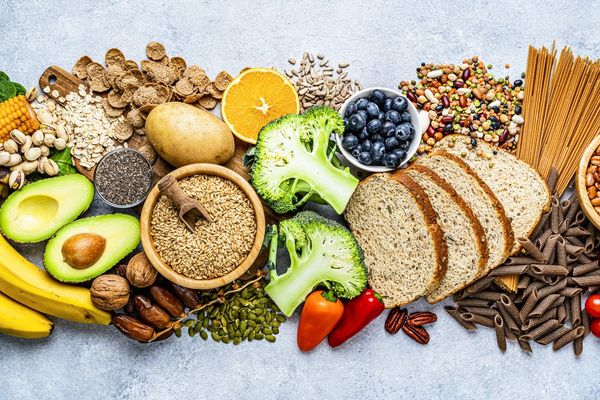Do some of your New Year's resolutions include eating healthier?
Nothing wrong with that.
But it pays to be not only educated, but also specific.
Looking for wholesome and nourishing foods can be confusing. Food items with words like "healthy," "natural" and "multigrain" might fill your shopping cart and make you feel virtuous, but the truth is, they should be approached with caution.
For fun, I recently took a look at Lake Superior State University's 38th annual List of Banished Words, a list based on nominations from the United States, Canada and beyond. Along with "fiscal cliff," "boneless wings" and "bucket list," I'd like to add a few of my own, including "foodie," "awesome" and "no worries." Let's also banish the word "superfood," which made me think about other food terms that are overused or, worse, misleading.
Multigrain. We all know that we should eat more grains—and maybe that's why this word sounds so healthy. But what we need to eat are whole grains—and multigrain does not mean whole grains. (The same goes for the term "seven-grain.")
Whole grain means that all parts of the grain kernel are used. By leaving the grain whole, certain nutrients, fiber and other healthy plant compounds that are found naturally are preserved. In refined grains, the healthiest portion of the grain is stripped away.
Multi- or seven-grain products might be a combination of grains, but those grains are not necessarily whole. Your multigrain bread, crackers or cereal might, instead, simply be refined flour with caramel coloring.
To do: Look for the word "whole" in the ingredient list, as in "whole-wheat flour."
READ: 10 Sneaky Ways to Get More Fruits and Veggies in Your Diet
Natural. There's no formal definition by the U.S. Food and Drug Administration (FDA) or the U.S. Department of Agriculture for the word "natural" to appear on food labels. Instead, the FDA's policy is that the term must be "truthful and not misleading" and that the product doesn't contain added colors, artificial flavors or "synthetic substances." The product's ingredient list may not contain the word "natural," except when the word is used in the phrase "natural flavorings."
Room for interpretation? Perhaps. Here's how: a food label may say "natural" but still contain preservatives—or, as is the case with raw chicken, be injected with sodium or other preservatives. For meat and chicken, the FDA allows the word to be used on products that are minimally processed and contain neither artificial nor added color. Also, some natural products may contain high-fructose corn syrup. (The excuse that companies may use for this one: Because it comes from corn, it's healthy. It's not.) Even processed foods may sometimes bear the label "all natural."
READ: Make Your Recipes Healthier
No Sugar Added. If you're concerned about calories and carbs, possibly because you have diabetes or want to prevent diabetes, these three words might entice you. But this doesn't necessarily mean that the food contains no sugar.
A word to the wise: Foods like milk, fruits and vegetables contain sugar—it's in there naturally—so technically, it's not "added." Those sugars may be healthier choices than processed foods with added sugars, because they may contain more fiber or other healthy nutrients, but you still should be aware of the sugar.
And, just because there's no added sugar does not mean there are no calories or carbohydrates. "No sugar added" products may contain other added ingredients like malodextrin (a sweetener made from rice, corn or potato starch), which is a carbohydrate. They may also contain added salt or have a high fat content to add flavor not provided by the absent sugars.







